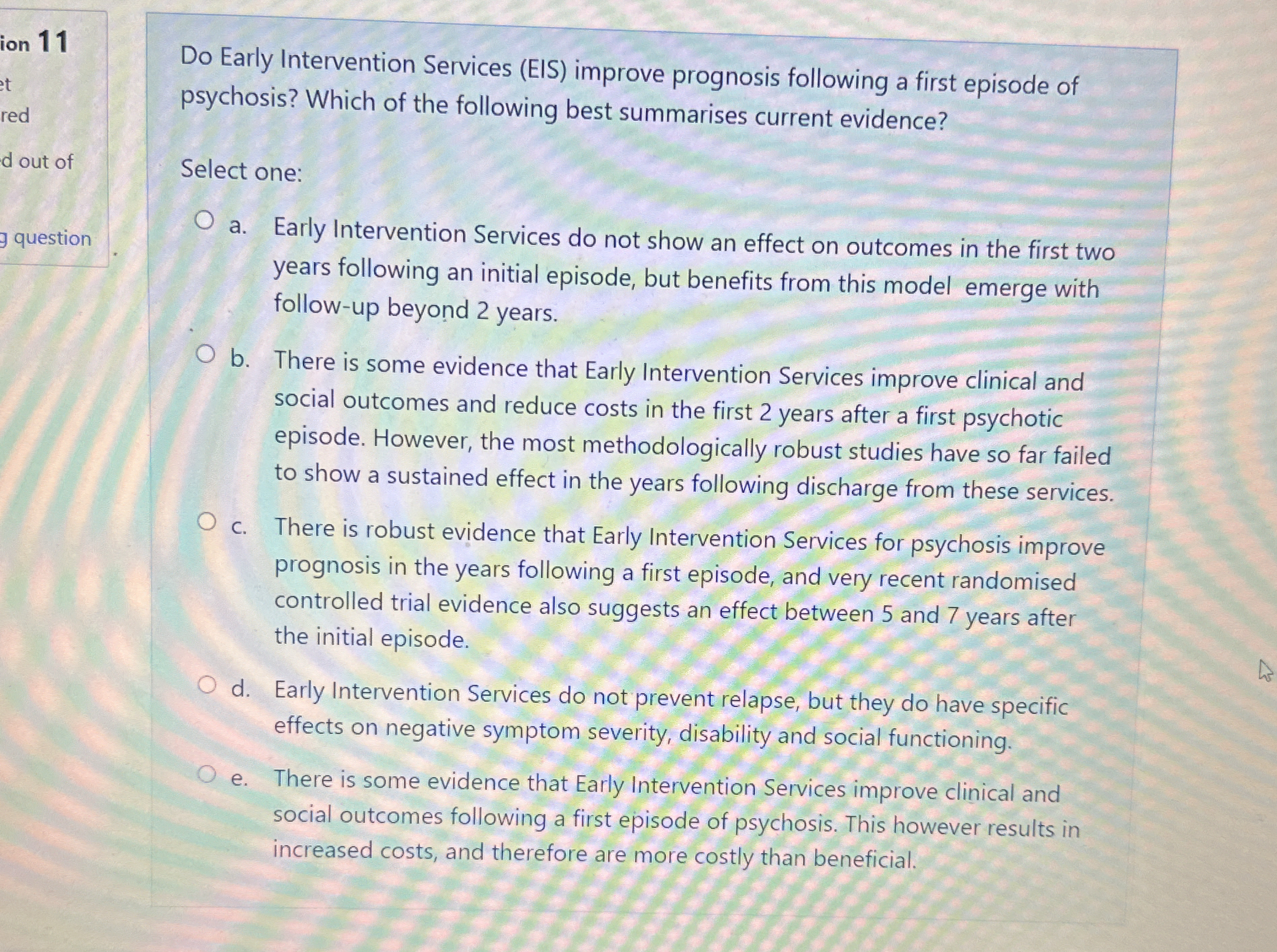Do Early Intervention Services (EIS) improve prognosis following a first episode of psychosis? Which of the following best summarises current evidence?

Understand the Problem
The question is asking about the effectiveness of Early Intervention Services (EIS) in improving outcomes following the first episode of psychosis. The user is to select the option that best summarizes the current evidence on this topic.
Answer
B. Evidence shows clinical and social benefits within 2 years, but lacks proof of long-term effects.
The final answer is 'There is some evidence that Early Intervention Services improve clinical and social outcomes and reduce costs in the first 2 years after a first psychotic episode. However, the most methodologically robust studies have so far failed to show a sustained effect in the years following discharge from these services.'
Answer for screen readers
The final answer is 'There is some evidence that Early Intervention Services improve clinical and social outcomes and reduce costs in the first 2 years after a first psychotic episode. However, the most methodologically robust studies have so far failed to show a sustained effect in the years following discharge from these services.'
More Information
Current evidence suggests early benefits from EIS in improving outcomes for first-episode psychosis, but long-term impact remains uncertain due to lack of robust evidence.
Tips
Do not assume long-term effects without strong evidence. Distinguish between short-term benefits and ongoing impacts.
Sources
- Consensus on early intervention services - psychiatryonline.org
- Early Intervention in Psychosis in Young People - pmc.ncbi.nlm.nih.gov
AI-generated content may contain errors. Please verify critical information